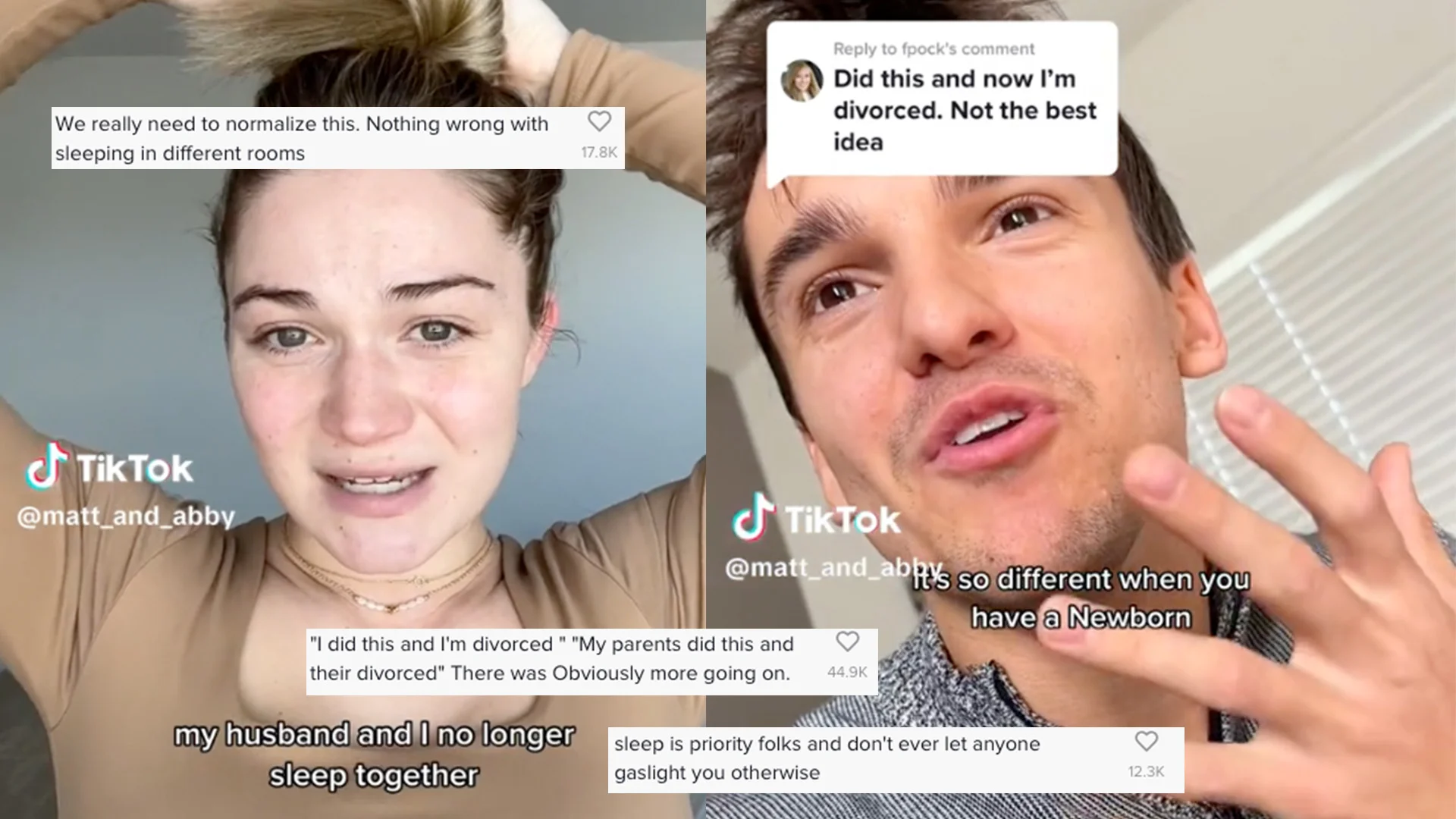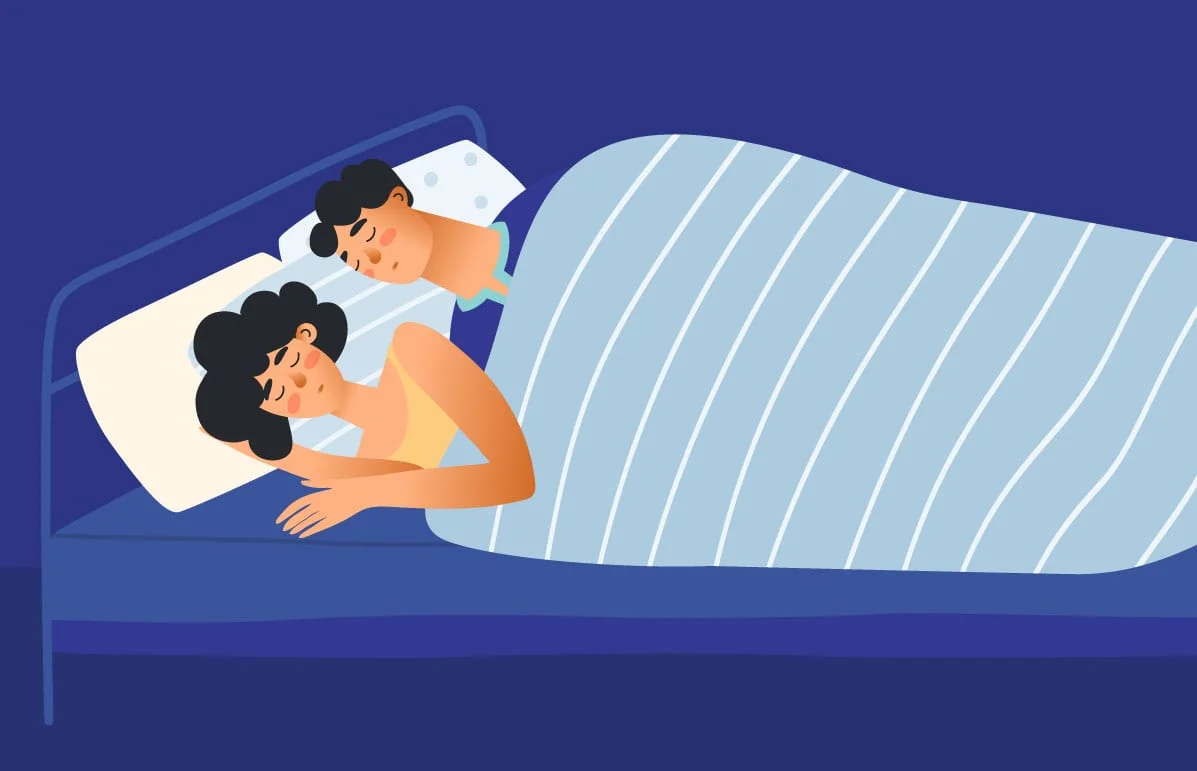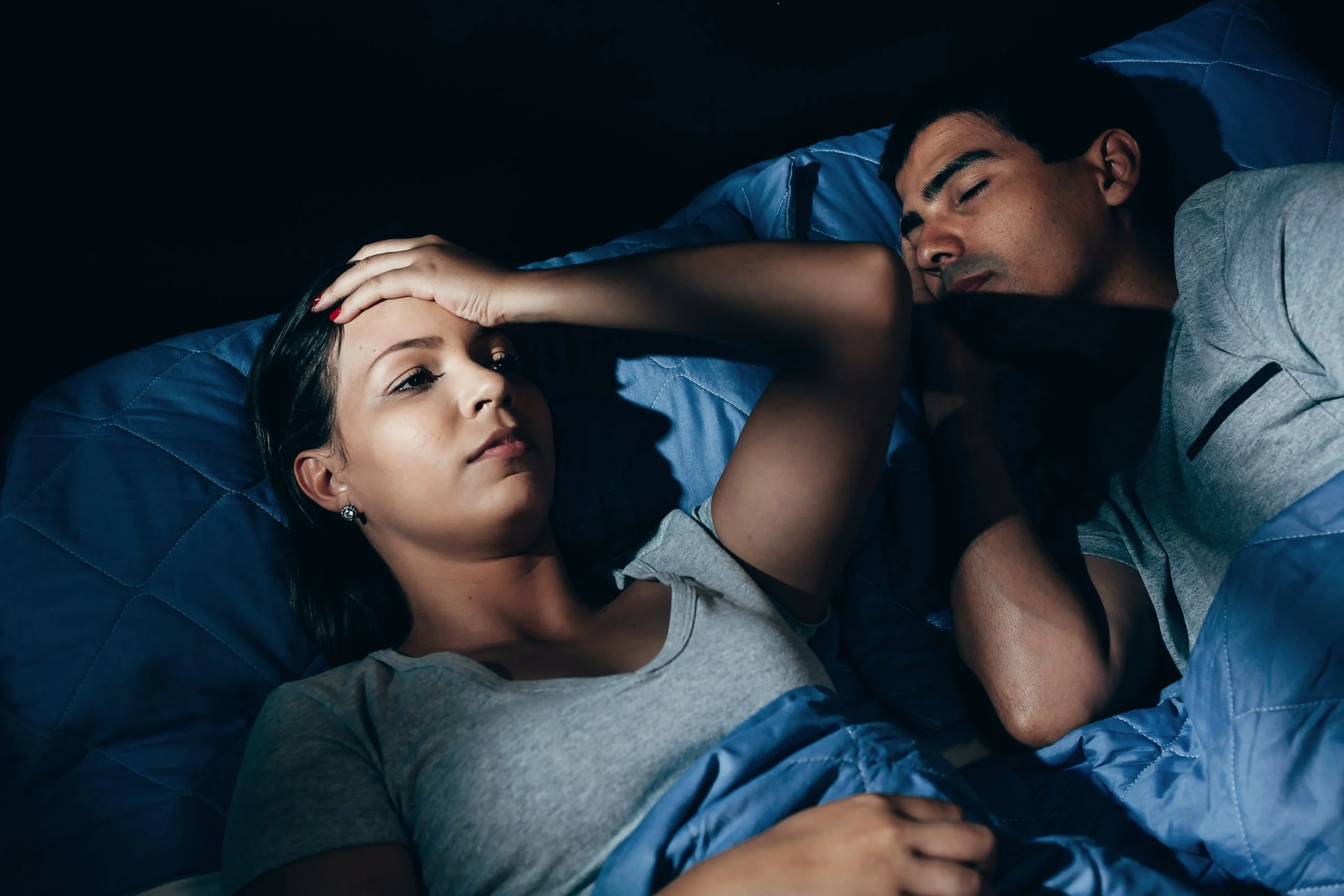
Are you having relationship problems? Consider reestablishing some new sleeping arrangements with your significant other or partner.
The arguments and disagreements don’t always come from managing finances and who does chores around the house. Instead, surprisingly, many of the issues might be linked to not getting those full hours of sleep.
Dr. Patrick Porter, Neuroscience expert and founder of BrainTap, said the quality of sleep both couples receive can influence their relationship.
“Insufficient sleep can lead to impatience, heightened irritability, and compromised communication. Over time, this can contribute to relationship stress and dissatisfaction,” Porter said. “Sleeping in separate bedrooms can enhance sleep quality by allowing individual customization of sleep environments based on preferences for factors like temperature, light, and sound.”
An actual divorce might not necessarily be the right option, but considering the new phenomenon of a “sleep divorce” might be something new you and your partner can try out.
Data shows that ditching the idea of sharing a bed to stand clear of a snorer and a restless sleeper might serve to achieve that beauty sleep.
If sleep has been a struggle for you recently, definitely keep reading so you can share some interesting insights with your partner for a happier and healthier relationship!
What Even Is a “Sleep Divorce?”
In a survey of 12,000 U.S. adults, 66% of the participants admitted to preferring to sleeping in the same bed as their partner. With this, sleep divorce might sound strange but it is coming to be something couples are experimenting with.
When you probably hear this term, the first thing that might come to mind is a broken relationship. But in fact, this concept might rekindle the spark in your relationship and make it more successful and intimate than ever.
It’s pretty simple. To take part in this divorce, the couples must sleep in separate bedrooms. The benefits of this arrangement come from the idea of taking time away from each other when the world offers multiple distractions and obligations that come with life.
The reason “sleep divorce” has come into play is because of multiple couple struggles. From snoring to frequent moving in the bed, this will leave your partner covering their ears with the pillow case or holding in the temptation to push you out of the bed.
A recent study by the mattress company Dream, surveyed 15,000 participants about sleeping habits with partners. Twenty seven percent said they preferred sleeping alone and 8 percent recorded they would consider getting separate beds.
The Issue with Snoring
A loud snorer is definitely worse than a nightmare from waking you up from your beauty sleep. Not only will the snores murder your eardrums, but studies show it might impact your relationship. If you are a victim to a loud snorer, listen up.
In the Dream survey, a little over half of the participants admitted snoring is the most aggravating part of sleeping with their partner.
In a past study, 10 married couple participants’ sleeping habits were evaluated. One of the members of the relationship was tested in a sleep study to see if they suffer from snoring and obstructive sleep apnea (OSA). The patients were divided into two categories: patients with CSA-CPAP (central sleep apnea treated with continuous airway pressure) and ones without.
The results concluded that when snoring was treated in OSA patients, sleep efficiency increased from 74 percent to 84 percent over 480 minutes of sleeping. This improvement benefited the couple’s relationship and became more efficient and stronger compared to the couples who were not treated for OSA.
Also, after the treatment of the OSA patient, the partner gained an extra of 62 minutes per night of sleep. This means that prior to treatment, sleep disturbance was keeping their partner wide awake leading to reduced sleep time.
We all know sleep is vital for our physical health, but when we lack it we tend to become extra cranky and more likely to snap at our partners throughout the day.
A Partner Who Tosses and Turns
It is the best feeling when you get under your comforter after a long day and you feel yourself slowly falling into that deep sleep. However, that changes when your partner is already asleep and they are soon enough swinging their arms and ripping the comforter right off of you.
Having a disturbed night sleep isn’t uncommon, especially if your partner is constantly moving in the middle of the night. Dream found that participants experienced disturbed sleep 50% of the week.
If you suffer from this on a nightly basis, you’re not the only one. Two related studies show that ditching the idea of sharing a bed could make sleeping more pleasurable once again. The first study took 46 couples and monitored them for eight nights. Female partners were more disturbed by the movements of their male partners.
In the second study, the study became more specific to the concept of “sleep divorce” as participants were placed into separate bedrooms. When the partner was present, subjects who slept with a partner showed a higher number of discrete movements compared to subjects who slept alone. When the partner was absent, the number of movements decreased when their usual bed partner was absent.
A strong relationship is built of intimacy and closeness, but a constant moving sleeper will leave a significant other wanting to stay as far as possible from their partner to achieve a good night’s rest.
So… What’s Next?
A sleep divorce might not be for everyone but it is worth the try to make sure you are getting at least 8 hours of sleep.
However, sleeping in separate bedrooms doesn’t have to jeopardize the relationship between you and your partner.
“Sleeping separately can influence a couple’s intimacy and emotional connection. However, with open communication, it doesn’t have to be negative,” Porter said. “This setup can even improve the relationship by lessening sleep-related tension. It also provides a chance for more intentional intimacy, like quality time together before sleeping.”
Even some popular Tik Tok stars and influencers are hopping onto the new method for couples.
Best known for their TikTok account @matt_and_abby, Abby and Matt Howard shared how taking a sleep divorce has benefited their relationship.
Abby admitted to being the ultimate cuddler ever since she has been a little kid. Her love for cuddling has leaked into her marriage with Matt.
The new parents have used the “sleep divorce” method to handle the night shifts for waking up to take care of their son. While she is a deep sleeper, Matt tends to be a light sleeper, she said they constantly had interrupted sleep.
“So rather than both of us having interrupted sleep in the night, it’s just one of us,” Abby said in a TikTok.
Abby said she was hesitant to the arrangement at first, but it is only temporary since she is pregnant again and needs quality sleep.
Today show host, Carson Daly, also tried a sleep divorce with his wife Siri. Carson said they decided to include sleep divorce into their marriage when his wife was pregnant with their fourth child.
“It’s the best thing that ever happened to us,” Daly said on air. “We both, admittedly, slept better apart.”
It sometimes gets difficult to juggle multiple aspects of our life such as sleep and relationships, but a sleep divorce might make it easier to prioritize both.

A TikTok Couple Tries a Temporary Sleep Divorce and the Internet Has Opinions

From Snoring to Stealing Covers: Ways to Cope With Your Partner’s Annoying Sleep Habits

The Pandemic Made Sleep Divorces Common. For Some, it’s Time To Get Back Together.

The Ultimate Guide For Sleeping As A Couple
Sources
Porter, Patrick. Personal interview. June 8, 2024.
Pankhurst FP, Horne JA. The influence of bed partners on movement during sleep. Sleep. 1994;17(4):308-315. doi:10.1093/sleep/17.4.308
Beninati W, Harris CD, Herold DL, Shepard JW Jr. The effect of snoring and obstructive sleep apnea on the sleep quality of bed partners. Mayo Clin Proc. 1999;74(10):955-958. doi:10.4065/74.10.955


























